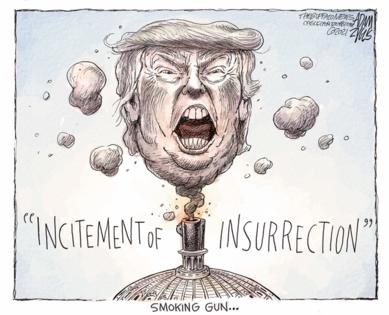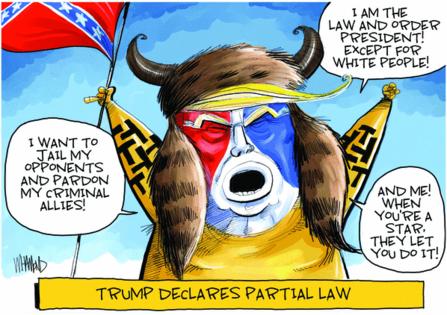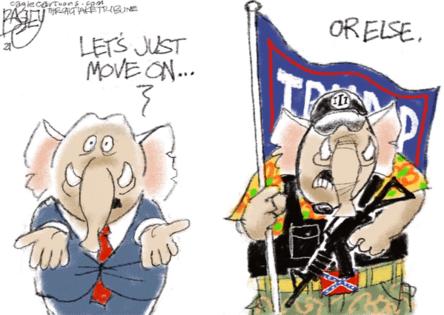Impeachment Isn’t About Trump Crossing the Rubicon
When Donald Trump became only president in our tangled history to be impeached twice, Americans found themselves asking, "What now?"
The better question is "What's next?"
It goes beyond the prospect of a trial in the Senate that now appears set to unfold in the opening days of the new Biden administration, despite arguments over whether the chamber has such authority (there is hardly unanimity on that score).
Every move the nation makes between now and when the Senate votes on whether to convict Trump on charges of inciting insurrection (and vote it absolutely must), will not only in echo in the near term, it will set the tone for the next 20 years of our politics and beyond.
Pundits have compared last week's riot at the U.S. Capitol, which left five people dead, to Julius Caesar and his forces crossing the Rubicon river in Italy in 49 B.C., prefacing for the civil war that ultimately toppled the Roman Republic.
The analogy is an imprecise one for a couple of reasons, not least because it does a grave disservice to Caesar, a master political strategist and brilliant (if utterly brutal) military commander. The oafish and authoritarian Trump can be accused of many things, but being a 21st century Julius Caesar is not one of them.
If we're looking for a more precise historical antecedent from the ancient world, we need to turn the clock back farther, to the decades between the third Punic War in 146 B.C. that saw the final obliteration of Carthage, and the rise of the Caesars.
As the historian Mike Duncan writes in his 2017 book “The Storm Before the Storm,” it was an era eerily similar to our own. One where the first cracks in the foundation of the Republic started to emerge.
Those years were, as Duncan notes, punctuated by "rising economic inequality, dislocation of traditional ways of life, increasing political polarization, the breakdown of unspoken rules of political conduct, the privatization of the military, rampant corruption, endemic social and ethnic prejudice, battles over access to citizenship and voting rights, ongoing military quagmires, the introduction of violence as a political tool, and a set of elites so obsessed with their own privileges that they refused to reform the system in time to save it."
The era also was filled with colorful, controversial and historically influential figures who are understandably overshadowed by the such later emperors as Augustus, Nero and Constantine. They include the Gracchi, a clan of populists who met a grisly end, as well as Sulla, who seized power through a military coup, setting the precedent Caesar followed when he finally toppled the Republic three decades later.
...continued
Copyright 2021 John Micek, All Rights Reserved. Credit: Cagle.com












